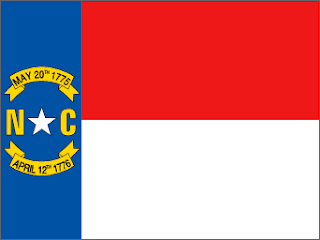I am fascinated with the odd little twists and turns of fate
that can be found in history. Sometimes, it’s better than anything we fiction
writers could create. Perhaps that’s one of the reasons I love writing and reading
historical fiction. We can borrow liberally from actual events!
As I was doing research into my current novel, Smuggler’s
Paradise (working title), I discovered that a few colonies had declared
independence from Great Britain, even before a THE Declaration of
Independence was signed by the Continental Congress.
So far, I’ve found:
Aside: It’s actually a bit
inaccurate to say “I discovered…” While my interest in this topic started with
my research into Rhode Island history, History.com has been feeding me great
information ever since. I love their “This Day in History” posts.
In today’s, This Day in History post, History.com talks
about a myth so prevalent that it’s made it into actual history.
You can read
their full post here, but according to their researchers, many people
(North Carolinians included) believe that North Carolina declared independence
in late May, 1775 – the actual day of the month varies.
But what was seen by historians as a declaration of North
Carolinian independence was actually a series of resolutions written by the men
from Mecklenberg and published almost forty years later by the Raleigh Register.
 |
| North Carolina State Flag |
In what was probably an issue of state pride, somewhere
along the line, North Carolina adopted – unofficially I believe – the date of
the Mecklenberg Resolutions and put it on the state flag.
The Mecklenberg Resolutions are another event going into my
“to be researched more” files. (That’s a very thick file, as you might
imagine.) I can just imagine a bunch of local men, patriotic fervor heated to a
boiling point by the battles at Lexington and Concord, taking matters into
their own hands. It sounds like a plan “launched on a sea of claret.”*
MJ
*I once read the Declaration of Independence described as “a
plan launched on a sea of claret” but have never been able to find the
reference again. I believe it was written by a contemporary of the times. I
will happily provide a copy in e-book form of either Le
Chevalier or Caution
to the Wind to the first person who can tell me who said that. If you know, please provide your answer in
the comments.
No comments:
Post a Comment